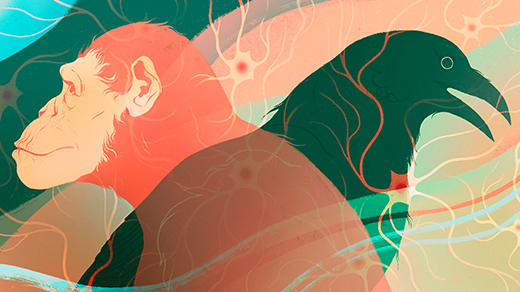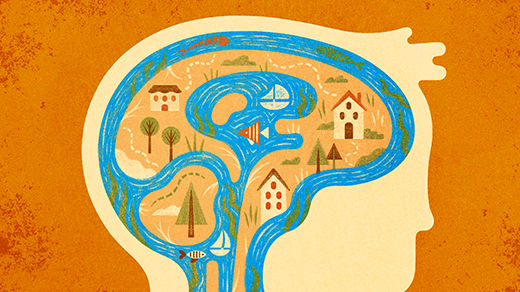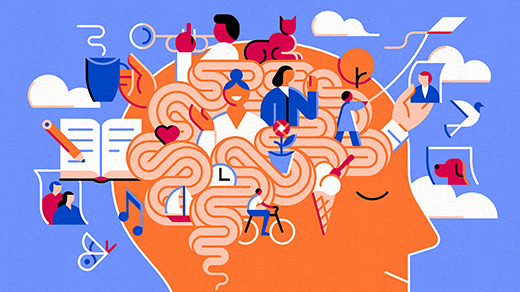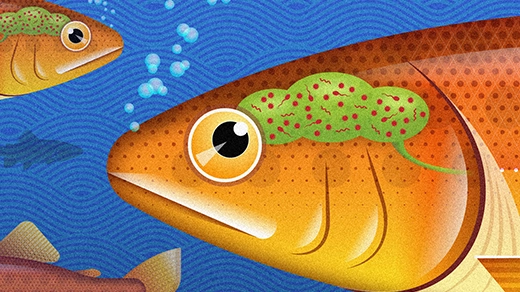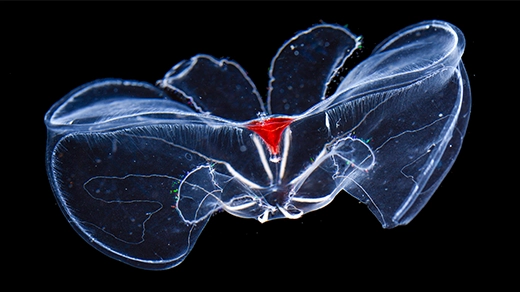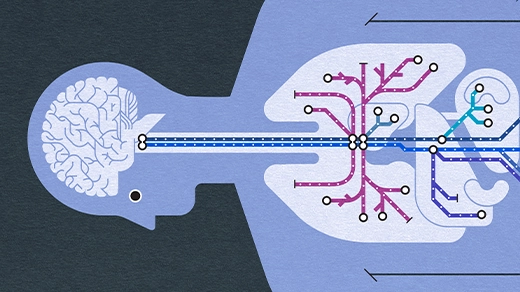What's up in
Brains
Latest Articles
Intelligence Evolved at Least Twice in Vertebrate Animals
Complex neural pathways likely arose independently in birds and mammals, suggesting that vertebrates evolved intelligence multiple times.
The Mysterious Flow of Fluid in the Brain
A popular hypothesis for how the brain clears molecular waste, which may help explain why sleep feels refreshing, is a subject of debate.
How ‘Event Scripts’ Structure Our Personal Memories
By screening films in a brain scanner, neuroscientists discovered a rich library of neural scripts — from a trip through an airport to a marriage proposal — that form scaffolds for memories of our experiences.
Concept Cells Help Your Brain Abstract Information and Build Memories
Individual cells in the brain light up for specific ideas. These concept neurons, once known as “Jennifer Aniston cells,” help us think, imagine and remember episodes from our lives.
Fish Have a Brain Microbiome. Could Humans Have One Too?
The discovery that other vertebrates have healthy, microbial brains is fueling the still controversial possibility that we might have them as well.
The Cellular Secret to Resisting the Pressure of the Deep Sea
Cell membranes from comb jellies reveal a new kind of adaptation to the deep sea: curvy lipids that conform to an ideal shape under pressure.
How Our Longest Nerve Orchestrates the Mind-Body Connection
Like a highway system, the vagus nerve branches profusely from your brain through your organs to marshal bodily functions, including aspects of mind such as mood, pleasure and fear.
Can Psychedelics Improve Mental Health?
Research suggests that psychedelic drugs can reopen critical periods of brain development to create opportunities for re-learning and psychological healing. In this episode, co-host Janna Levin speaks with Gül Dölen, a neuroscientist studying the therapeutic potential of psychedelic substances.
What Happens in the Brain to Cause Depression?
Drugs that target the neurotransmitter serotonin have long been prescribed to treat depression. Now the spotlight is turning to other aspects of brain chemistry. In this episode, the neuropharmacologist John Krystal shares findings that are overturning our understanding of depression.
